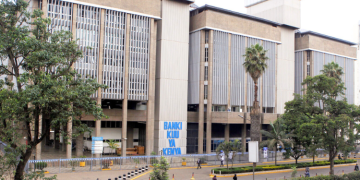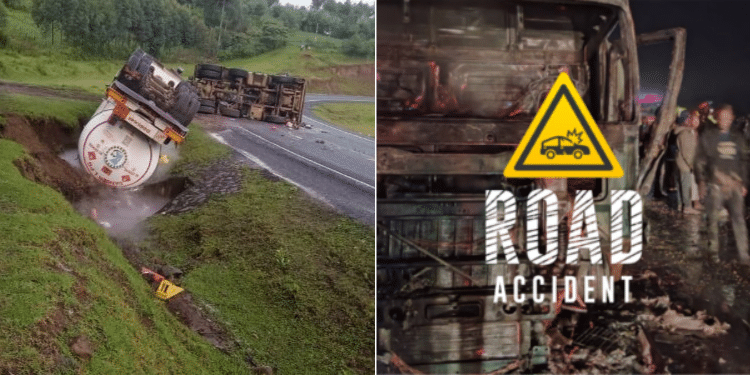The Energy and Petroleum Regulatory Authority (EPRA) has identified common causes of petroleum tanker accidents.
According to EPRA, petroleum tanker accidents continue to dominate as the leading cause of incidents within the petroleum and LPG sector.
For the past six years, petroleum tankers have consistently topped the list of road accidents.
The leading causes of tanker accidents include driver fatigue and lack of concentration, insufficient defensive driving skills and inadequate vehicle maintenance.

Others include road indiscipline and the absence of a comprehensive journey plan that defines approved driving times, identifies hazardous areas, and designates approved rest stops.
EPRA Lists Major Causes of Tanker Accidents
Fatigue occurs when a driver becomes physically and mentally exhausted, often from long shifts or insufficient rest between trips. This exhaustion impairs the driver’s ability to stay alert, react quickly, and make sound decisions.
Lack of concentration, which often accompanies fatigue, leads to lapses in focus, causing drivers to overlook hazards, drift out of lanes, or misjudge traffic conditions.
Long hours behind the wheel often lead to exhaustion, impairing drivers’ ability to remain alert.
Also Read: EPRA Lists Top 10 Petroleum Companies in Kenya by Sales Volume & Market Share
Additionally, the authority mentioned that many drivers lack sufficient defensive driving skills, which are crucial for navigating hazardous situations on the road.
Defensive driving involves anticipating potential dangers, such as unpredictable actions by other drivers, sudden road hazards, or changing weather conditions.
Drivers with strong defensive driving skills are trained to stay vigilant, maintain safe following distances, and react quickly to avoid accidents.
Other Reasons Why Petroleum Tankers Are Topping List
Another major concern is the inadequate maintenance of vehicles, which leads to mechanical failures that heighten the risk of accidents.
Poor maintenance of tankers can result in critical issues such as brake malfunctions, tire blowouts, and steering problems.
These failures are especially dangerous given the size and weight of petroleum tankers, making it difficult for drivers to control the vehicle in emergency situations.
Regular inspections and proper maintenance are essential to prevent such mechanical breakdowns.
Also Read: EPRA Reduces Fuel Prices for October & November
Road indiscipline, such as over speeding and reckless driving, is also a major factor contributing to tanker accidents.
Additionally, some drivers practice freewheeling, where they coast downhill in neutral to save fuel, which severely limits control over the vehicle.
This dangerous habit not only reduces the effectiveness of braking systems but also makes it harder for drivers to respond quickly in emergencies, further increasing the risk of collisions.
The absence of a comprehensive journey plan is another key factor contributing to tanker accidents. A well-structured journey plan is essential for ensuring road safety, as it outlines approved driving times, identifies hazardous areas, and designates appropriate rest stops for drivers.
Follow our WhatsApp Channel for real-time news updates
https://whatsapp.com/channel/0029VaB3k54HltYFiQ1f2i2C











































































